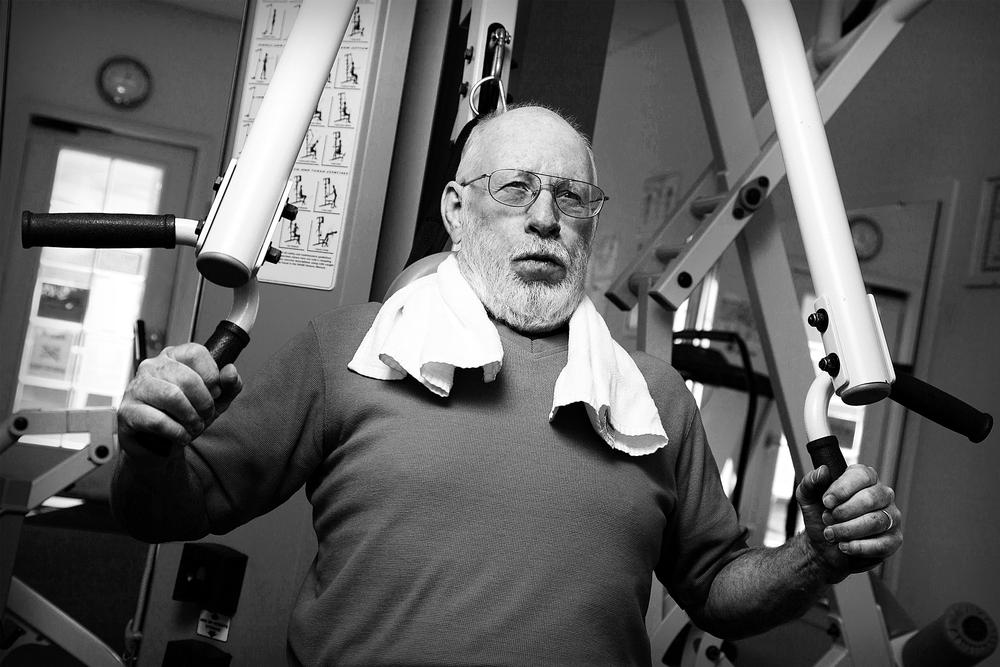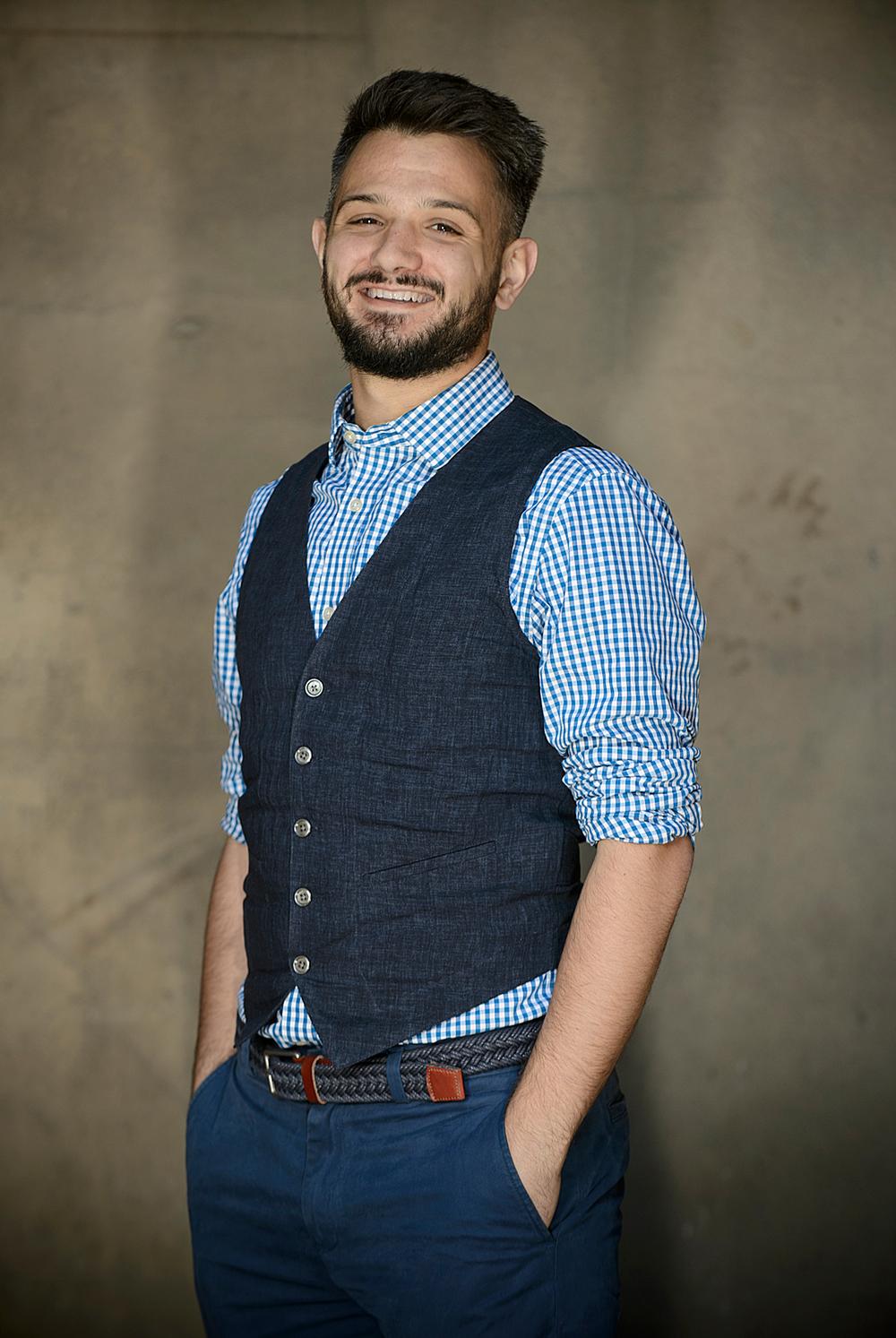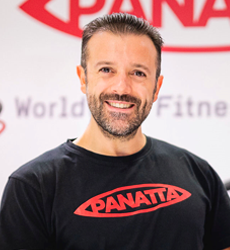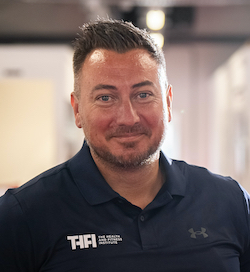There are two things that define ukactive,” says its new executive director Steven Ward. “The first thing is that we’re very open and collaborative. We look to work with our partners first and foremost, involving them, engaging with them.
“But the second is that we crack on.
If we believe what we’re doing is right, we don’t prevaricate or sit on our hands. We’re willing to make difficult decisions and move things on.”
Ward comes into the executive director role with in-depth knowledge of ukactive as an organisation: he started out as a self-confessed ‘policy geek’ in the public affairs department of the then FIA (Fitness Industry Association) in 2006.
Baroness Tanni Grey-Thompson – the Paralympian turned cross-bench peer and ukactive chair – is clearly fired up by this chance to ‘crack on’. “Our independent nature allows us to challenge, even to be a little bit edgy at times,” she says. “That’s something that excites me. We can ask questions.
“But if we’re going to challenge other people to be better, we have to make sure we’re really good at what we do ourselves. And that’s really my mission in this role: to ensure that ukactive keeps doing things really well, and also to make sure that the world sees that.”
A broader remit
The organisation is certainly already evolving in line with its 2012 name change from FIA to ukactive: most visibly there’s a new governance structure, bringing in representatives from a much broader cross-section of the physical activity sector, as well as notable names such as Grey-Thompson and Dame Carol Black as non-executive directors.
“As we went round the table at the first meeting of the new Member Council, you could hear the different perspectives from the various parts of the sector being voiced in really clear, succinct ways. That enabled everyone to understand where the entire sector was coming from on particular issues,” says Ward.
“But crucially everyone signs off on ukactive’s mission of ‘more people, more active, more often’. That’s the force that unites the diverse range of people that makes up the ukactive membership base these days – that allows them to co-exist. They know every decision we make is with a view to achieving that mission quicker and more successfully than before. People are able to put aside their own brands, their own segment of the industry, because they all buy into that.
“In fact, the Council was encouraging us to become even more of a campaigning body towards that mission. There will always be things we as a trade association want to do to bring benefits to our members, but if ukactive can establish physical activity as a top tier priority in government and society as a whole – quite aside from it being the right thing for society – I believe that really would be the biggest benefit we could bring. It would create a better trading environment for everyone in the sector.”
Educating the educators
So with this in mind, what projects is the ukactive team currently ‘cracking on’ with?
One key area of focus at the moment is childhood inactivity, with the creation of a new ukactive Kids division – the result of a merger with Compass – and the launch of the much-publicised Generation Inactive report, which Ward says has had the desired impact: “The shadow health minister has been asking for the public health minister to respond to the report in parliament. People can’t ignore it – they have to have a view on it.”
But will that translate into policy? “We have to get national breakthroughs,” acknowledges Ward. “But actually it’s at the local level where the conversations are really happening – in the local authority tenders and so on – and they’re happening because our reports are arming people with statistics and insights they might not otherwise have had.”
That said, Grey-Thompson believes change is possible at a national level: “I think we could shift the conversation about education quite a lot in this five-year parliamentary term. We need parents to be more demanding: if maths were taught by someone who’d had three hours’ introduction in how to deliver it, there’d be uproar.
“But we also need to focus on physical literacy and enjoyment, and on activity throughout the school day rather than just during PE lessons. Because that’s great if you’re good at PE, but pretty miserable for most people.”
An active UK
Given the immediate impact of ukactive Kids, might ukactive consider launching more sub-branded divisions? “It’s an interesting possibility isn’t it?” nods Ward. “We have the ability over the next few years to look at creating unique forces to deal with other important areas. ukactive Kids focuses predominantly on primary schools, but there’s no reason we couldn’t address the issue of teenage drop-out in future years, or older adults. Or we could look at specific health conditions. We now have the nation’s best policy think tank institute on physical activity and we should be using it.”
In line with this, ukactive has also started work on a new Blueprint for an Active UK report, due out in November, which will offer policy recommendations in lots of different areas where physical activity can have an impact – from mental health to active ageing to town planning. “We’ll be putting a microphone in front of the many, many voices that have something to say and we’ll whittle it down to a page or two, no more, on each topic,” says Ward. “The final report will present the total picture of the benefits of activity to society, along with some really clear recommendations for each area. We don’t mind how people get active, or why, so we can talk across the board in a very neutral and unbiased way.
“If government then wanted to take that on, turning it into a white paper or a national physical activity act, and to legislate at some point, the report would be a starting point from which to do that.”
Proving our value
Another success story is the ukactive Research Institute, which has gained significant coverage for its ‘real world’ approach – demonstrating the impact of exercise interventions in everyday environments rather than a laboratory.
“The great thing is that the academic community is moving in that direction too,” explains Ward. “Now all the big grants have enormous sections in the weighting for scoring on the real world application – on what partners you’ve enlisted to show that what you do has translational delivery. We have that side of the discussion covered.”
He continues: “I believe data, research and the Institute will increasingly be front and centre of everything ukactive does.
“We’re undertaking a valuation of the activity sector, for example – one that goes far beyond the thus far accepted figure, which is essentially just the combined direct debit run of fitness facilities’ membership fees.
“That direct debit figure undercuts the significance of our sector when we’re speaking to financial stakeholders. It’s a figure that gets lost in the rounding up of the welfare bill, let alone giving us any status as a standalone industry.”
Grey-Thompson agrees: “I think it’s really important, because if you start talking about a sum of money – say £10bn a year – that would be a hell of a lot for us sitting in our own bank accounts, but not so much in terms of what we spend as a country on things like hospitals, roads, education.
“We need to understand the context in which we’re speaking about ourselves, and we need to value ourselves in a way that tells the whole story – not just memberships, but employment and so on – so people sit up and realise the value of our sector’s contribution.”
Heads held high
And let’s not forget the skills agenda – specifically the current push towards a single, unified workforce development strategy that’s being led by ukactive and CIMSPA. How important is it to imbue the sector’s skills structure with the ‘chartered’ nature of CIMSPA, I ask?
“It’s about proving to everyone outside the sector that we can hold our heads up – that we have well-qualified, well-trained, good people,” says Grey-Thompson.
By having a skills structure that clearly identifies the truly highly qualified, it also offers the tantalising prospect of co-operation with the likes of the RCGP (Royal College of General Practitioners), who will be able to recognise those individuals in the health and fitness sector who are able to meet their exacting standards for collaboration.
“It’s going to be tough diplomacy and tough work to make it happen, but we’ll keep trying because it’s the biggest issue we have to nail for the industry,” says Ward. “There are people out there in the industry who would already qualify for the new ‘chartered professional’ status, no matter how high we set the bar. They just have no means, at the present time, of differentiating themselves from someone hot off the production line. That’s holding us back in terms of our credibility as a sector.”
Creating a legacy
It seems there’s plenty on the ‘to do’ list then. So with all this to choose from, what, I ask, would Ward and Grey-Thompson like their legacy to be when they look back on their time at ukactive?
“That ukactive continues the progress it’s made over recent years, to the point where people feel they belong – not just as members, or members’ members, but because they share our mission as the nation’s physical activity champion and want to be part of it,” says Ward.
“Making it so everybody sees activity as a natural part of every single day of their lives. That it’s embedded in everything they do – they don’t even have to think about it, because it’s just there,” concludes Grey-Thompson. “It’s a big aim, but ukactive is up for the fight.”





























































